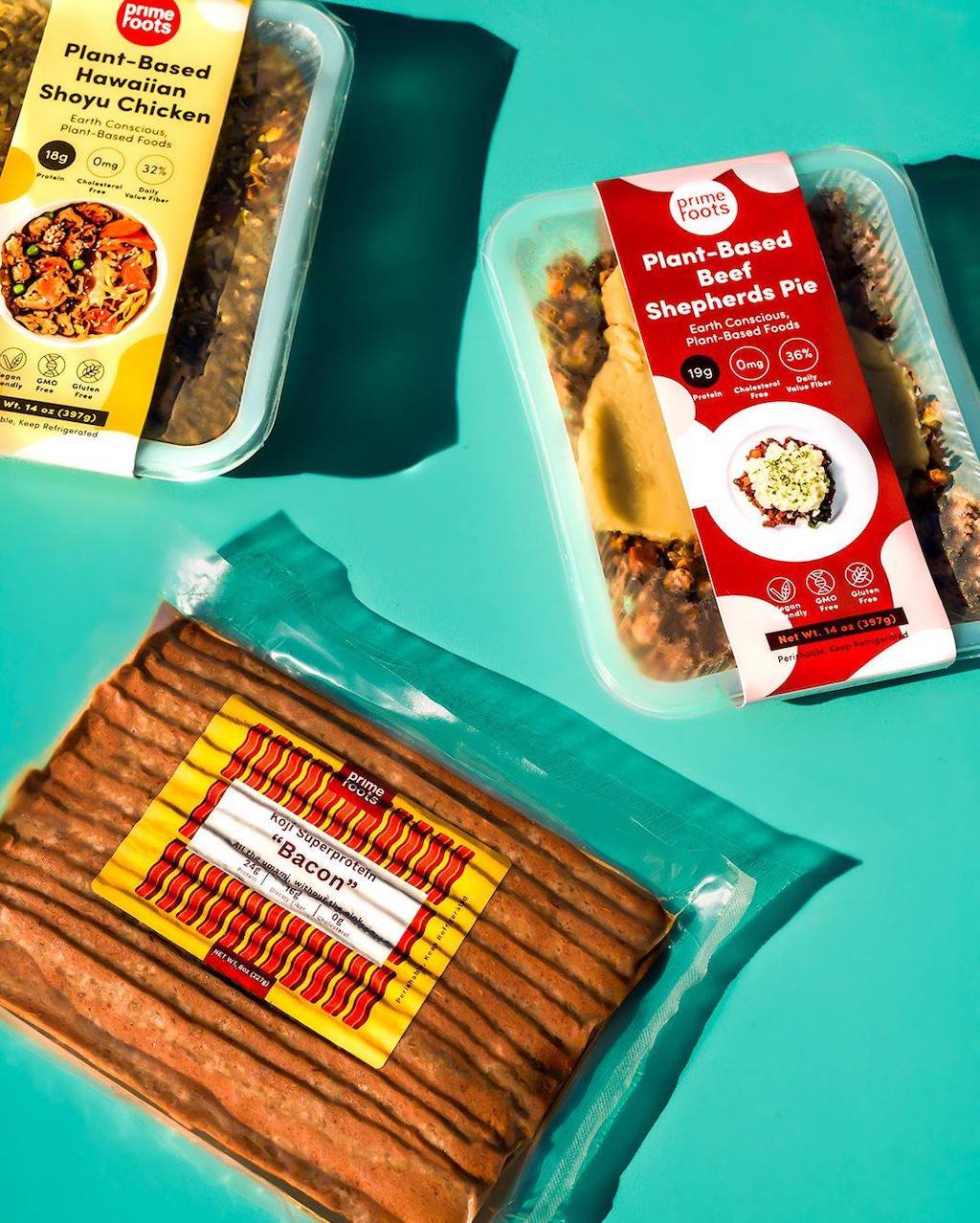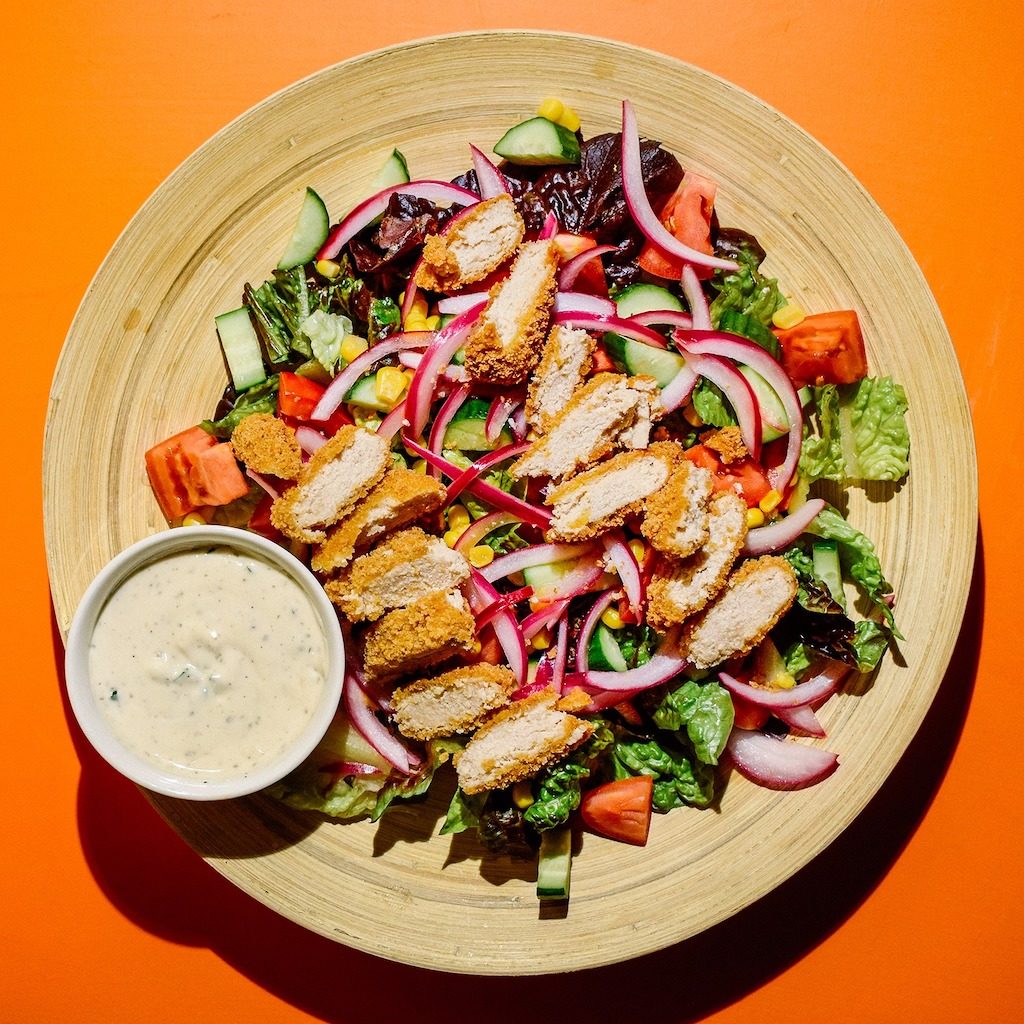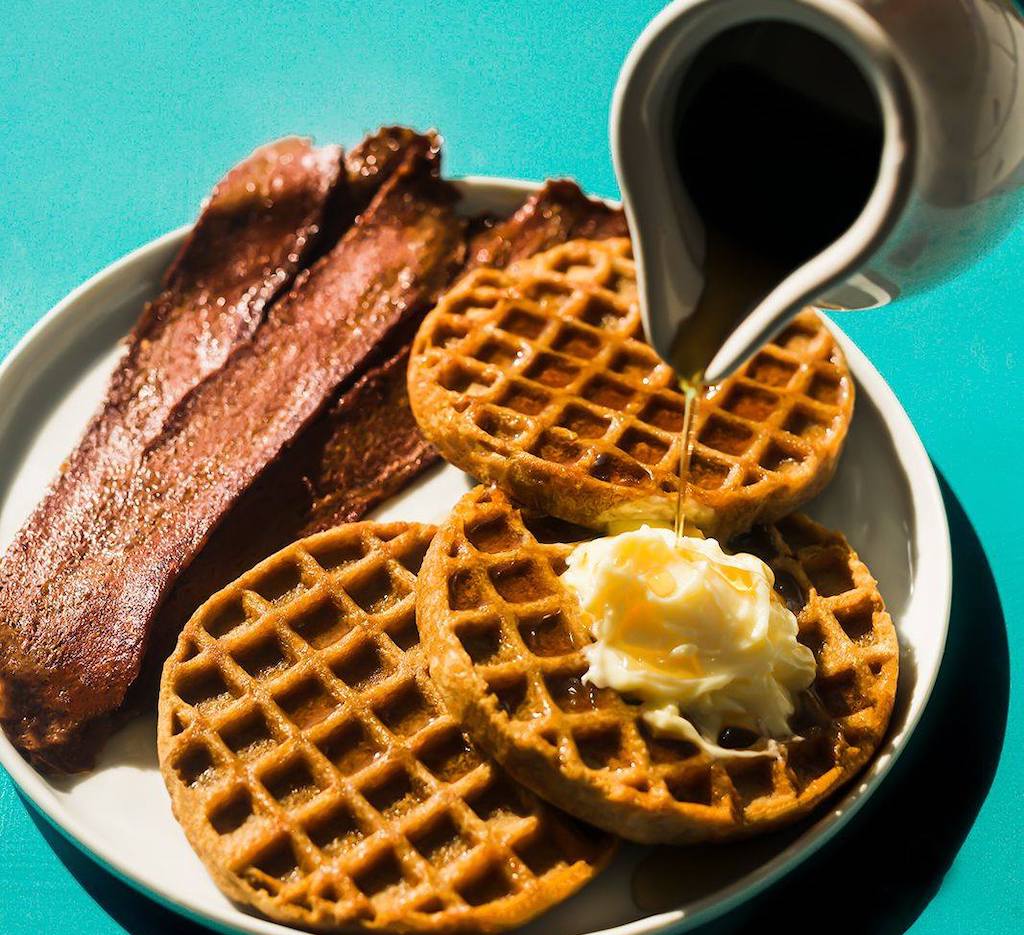4 Mins Read
There’s no doubt that plant-based meat is taking over grocery aisles all over the world, from “bleeding” Impossible Foods beef burger patties to Heura’s vegan chicken strips and even 100% plant-based OmniPork “Spam”. While the options and formats are plenty, many startups are using soy protein as the base ingredient. Berkeley, California-based Prime Roots is doing something different. Founded by Kimberlie Le, this food tech is using the Japanese fungus koji to make bacon strips, turkey and meaty-tasting meals and is even developing seafood using the magic “superprotein” ingredient.
Growing up as the daughter of a chef and restaurateur, Le describes herself as a “meat lover all of her life”. But when she realised the environmental impact of meat – from contributing almost a fifth of global greenhouse gas emissions to deforestation – she decided to switch to vegan meat alternatives, most of which were “underwhelming” and “lackluster”.

So she decided to combine her foodie and microbiology background into a new venture: a brand of meat alternatives that don’t compromise on taste and texture, thanks to her special ingredient, koji. Often called “Japanese mold”, the ingredient has been incorporated into Asian cuisines for centuries to give dishes a fermented umami flavour.
Koji is itself a really beautiful, naturally textured, high-protein food, and you can use it as a base for all types of meats and seafoods.
Kimberlie Le, Co-Founder & CEO, Prime Roots
“Now it’s highly beloved by numerous Michelin-starred chefs, but it’s part of my culinary toolkit because we started fermenting koji when I was young,” said Le, in an interview with Californian publication Berkeleyside. “Koji is itself a really beautiful, naturally textured, high-protein food, and you can use it as a base for all types of meats and seafoods.”

“Koji is a whole protein, and you can grow it with microscopic fibers that are identical to meat muscle fibers. Plus you can harness its textural and umami abilities to make the best version of meat,” she added. The food tech’s unique fermentation process and ingredients makes it to date the only startup offering koji-based vegan meat alternatives, and one of the emerging players in the rising fermentation sector – the “third pillar” of the alternative protein industry.
Along with koji, Le crafts her range of plant-based Prime Roots meats, which includes bacon strips and turkey, as well as chicken strips, pork and beef in her vegan ready-meal line, out of coconut oil, konjac, rice, pea protein and various natural flavourings such as garlic and sesame.
We’ll know that we are successful when every person on the planet has access to clean water and delicious and nutritious foods.
Kimberlie Le, Co-Founder & CEO, Prime Roots

While its bacon, which launched earlier in February, is a clear hit with consumers, Le says that the brand’s plant-based online meal subscriptions have shot up amidst the pandemic. The meals, among them vegan kung pao chicken, meatless mac ‘n’ cheese, and pork soba noodles, are also retailed in various markets around the Berkeley area.
Looking ahead, the company is also developing a line of plant-based seafood products, which koji will come in as a handy base ingredient to deliver the desired fishy, umami and richness of flavour that consumers love about conventional fish. In the pipeline are shrimp, tuna chunks, crab cakes, lobster chunks and salmon burgers.
Ultimately, Le’s dream is to bring tasty yet ethical alternatives to all animal-based meats that people love. “I hope that one day we’ll be able to feed millions if not billions of people our delicious and sustainable foods. We’ll know that we are successful when every person on the planet has access to clean water and delicious and nutritious foods.”
All images courtesy of Prime Roots.




